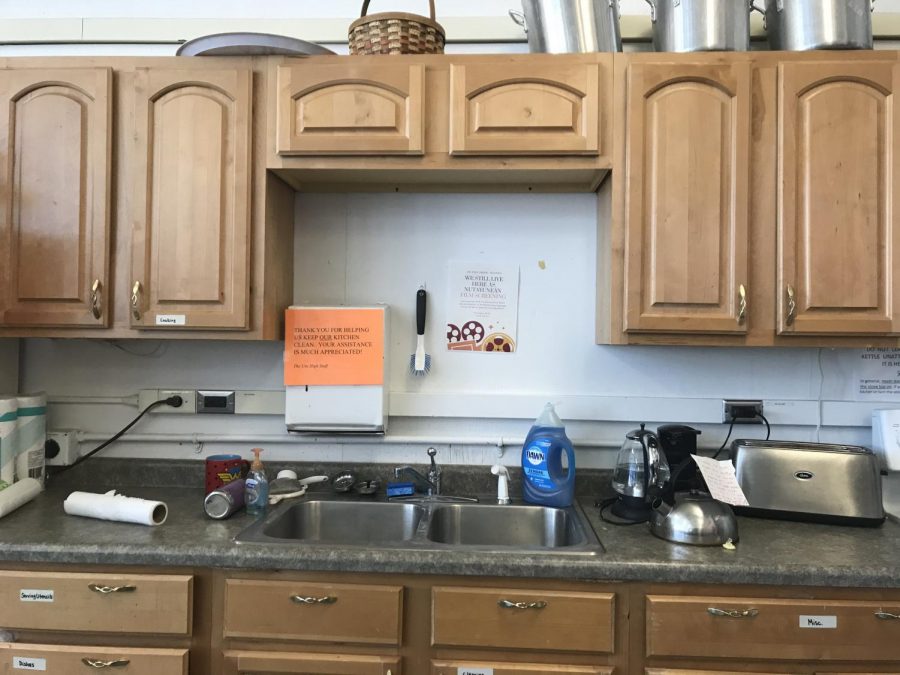The Uni kitchen may remain messy in the future
The kitchen, serving as Uni’s ‘cafeteria’ is one of the most notorious and beloved rooms in the building by students and faculty. Due to its placement on the first floor, it is most often used and occupied by juniors, seniors, and faculty. Unlike many other schools, it is fully equipped with many home cooking tools like rows of microwaves, refrigerators, tables, and a stove. While its reputation is often associated with delicious food sales throughout the year, it is also known for some uncleanly habits as seen by e-mails from faculty begging for a cleaner environment. Some do not see any issues with the kitchen, while others are disgusted by it. But, how messy is the kitchen really? Most agree that it is tolerable at most times, but spikes in disorganization every few weeks.
If the kitchen follows an irregular pattern of messiness, how often do people really use it? Students like Junior Allie Kim “use it a lot during free periods because the 1st floor doesn’t have a lot of tables.” Others like Interim Director Elizabeth Majerus seem to use it quite often for its functional use like washing dishes and cups daily. When asked how Dr. Majerus would describe the messiness of the kitchen on a scale from 1-10 with 10 being very messy, she said “A typical day is about a 3 and then it spikes up to maybe a 7 or 8. A 10 day is when there is something disgusting clogging the sink.” Many students agreed with this idea that the kitchen is relatively clean at most times, but briefly becomes unbearable every 2 weeks or so. Thus, it seems as though there is some pattern of large messes made by Uni students that enables the kitchen to move to a disgusting level, but then quickly recede.
Perhaps this pattern is triggered by the notorious e-mails sent by Dr. Majerus – with pictures. These e-mails are usually focused on a particularly disgusting mess found in the kitchen that poses an obstacle to other kitchen users along with a plea for someone to clean it up. Majerus says she sends these e-mails out in order to put the problem on students’ radar.
“Because I don’t wanna do something like close the kitchen, but I will if we need to send a message,” she says, in hopes that students will start to prevent a mess from happening in the first place.
From a student’s perspective, it seems that most do not pay much attention to the e-mails, as only a very small percentage of the student body is responsible for any messes made.
“Since I know I’m not the person making the mess, I just ignore them [e-mails],” says Allie Kim.
Senior Minji Choi says, “I think her e-mails are kinda funny actually… But I think it does kind of show that Uni students do lack that kind of responsibility.” As it might not be possible to change the mentality of Uni students or their ‘cleanliness,’ this issue might be a never-ending cycle.
It does not seem like Uni students will be changing their mess-related habits anytime soon. It appears as though these habits could just be another thing that plays into the culture of Uni.
“I think the mess is very fitting for our school’s vibe. Because if we are trying to change our rep, then we also have to change the hallway situation, and that’s not gonna happen,” Choi says. Thus, it seems plausible that the kitchen mess will have a place to stay at Uni and just add to the ‘comfortable vibe’ that Uni is known for.


